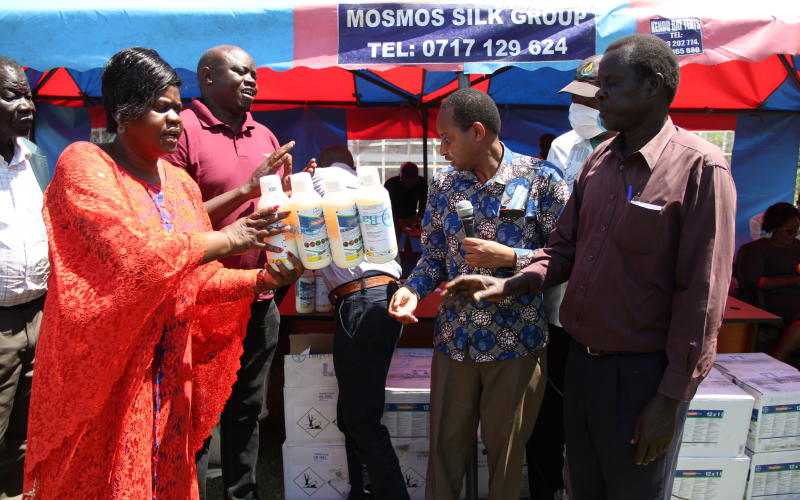×
The Standard e-Paper
Join Thousands Daily

Homa Bay Cotton Farmers Co-operative Union chairman John Akoko, Rivatex General Manager Patrick Nyaga and Homa Bay Woman Rep Gladys Wanga in Karachuonyo constituency. [James Omoro]
Efforts are underway to revive cotton production which was the key driver of economy for residents of Homa Bay County between 1962 and 1990s.